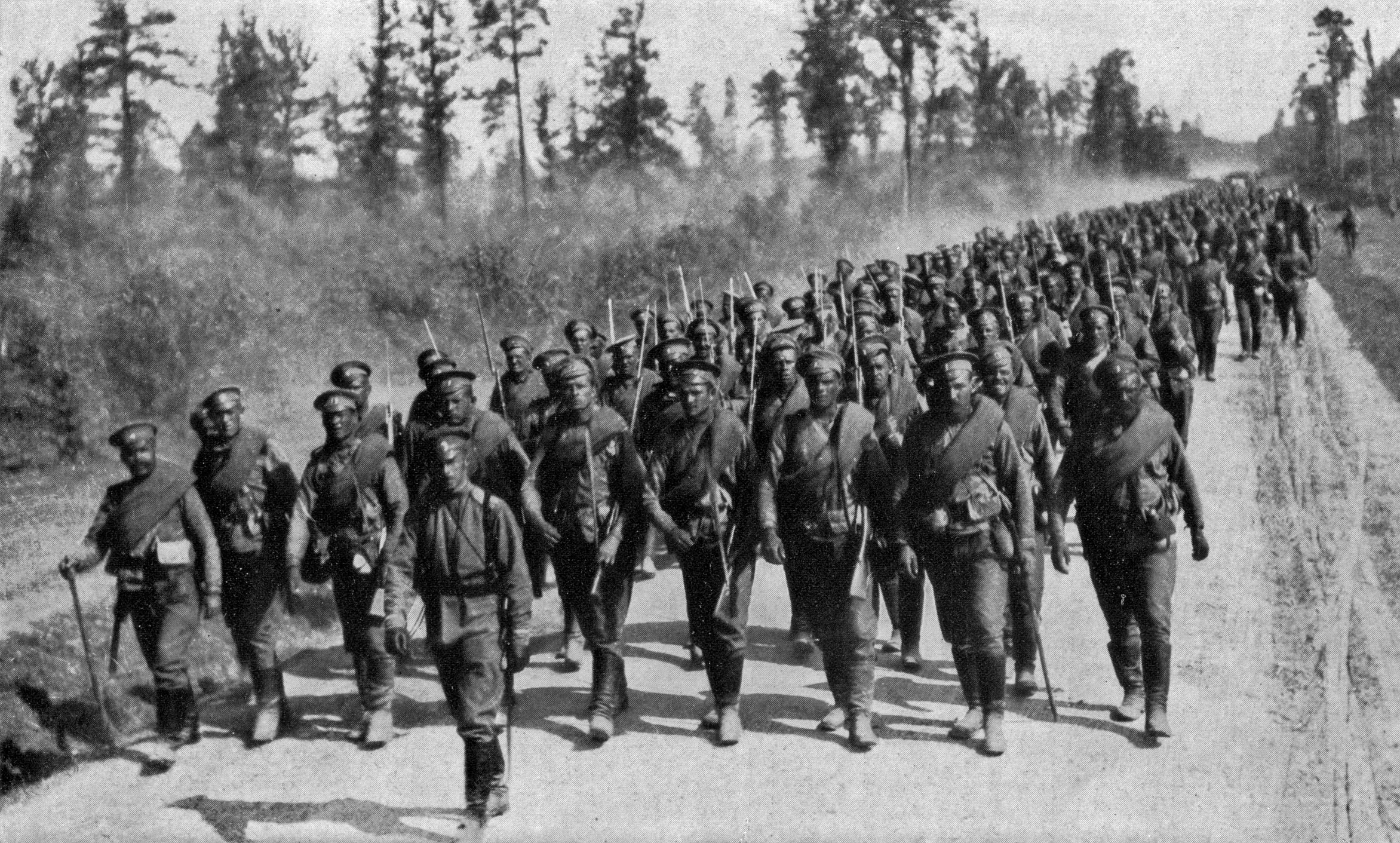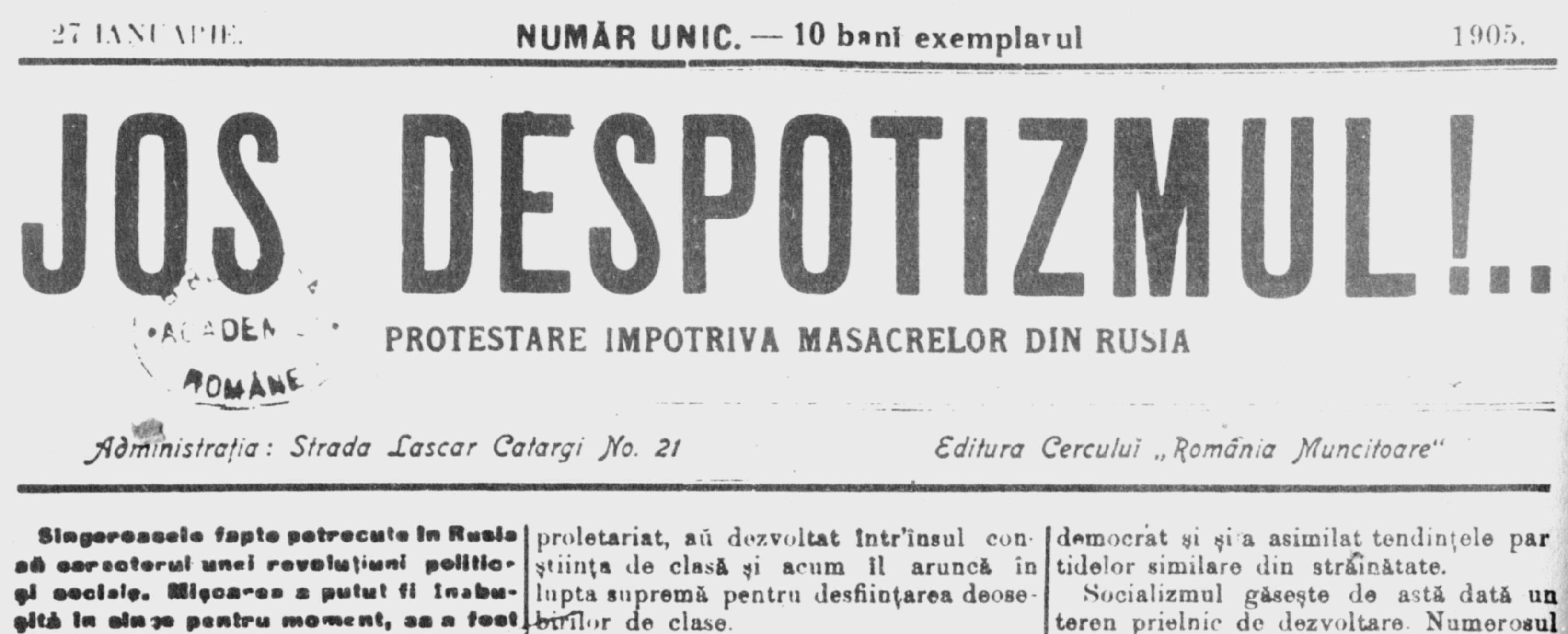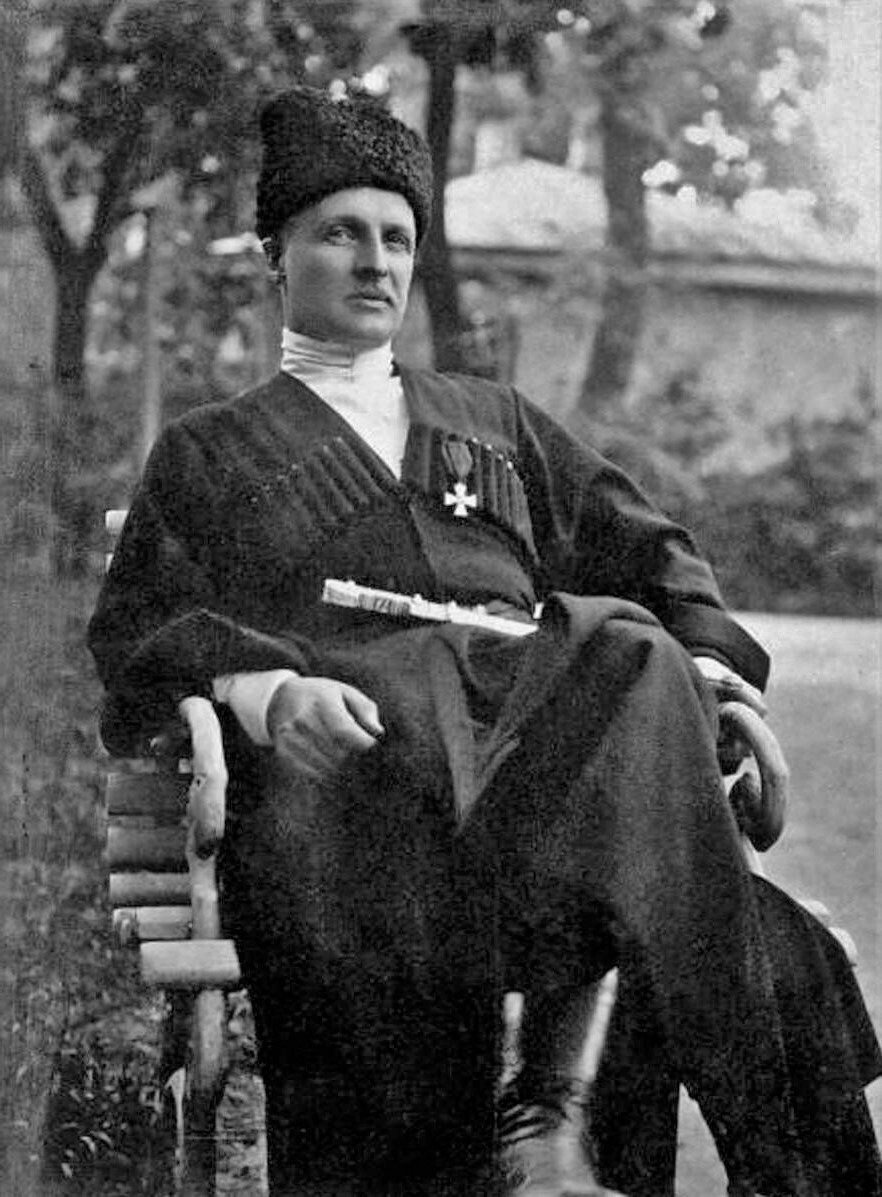|
Ukrainian War Of Independence
The Ukrainian War of Independence, also referred to as the Ukrainian–Soviet War in Ukraine, lasted from March 1917 to November 1921 and was part of the wider Russian Civil War. It saw the establishment and development of an independent Ukrainian republic, most of which was absorbed into the Ukrainian Soviet Socialist Republic between 1919 and 1920. The Ukrainian Soviet Socialist Republic was one of the constituent republics of the Soviet Union between 1922 and 1991. The war was fought between different governmental, political and military forces. Belligerents included Ukrainian nationalists, Ukrainian anarchists, the forces of Germany and Austria-Hungary, the White Russian Volunteer Army, and Second Polish Republic forces. They struggled for control of Ukraine after the February Revolution of 1917. The war ensued soon after the October Revolution, when the Bolshevik leader Vladimir Lenin dispatched the Antonov's expeditionary group to Ukraine and Southern Russia. ... [...More Info...] [...Related Items...] OR: [Wikipedia] [Google] [Baidu] |
Eastern Front (World War I)
The Eastern Front or Eastern Theater, of World War I, was a theater (warfare), theater of operations that encompassed at its greatest extent the entire frontier between Russian Empire, Russia and Kingdom of Romania, Romania on one side and Austria-Hungary, Kingdom of Bulgaria, Bulgaria, the Ottoman Empire, and German Empire, Germany on the other. It ranged from the Baltic Sea in the north to the Black Sea in the south, involved most of Eastern Europe, and stretched deep into Central Europe. The term contrasts with the Western Front (World War I), Western Front, which was being fought in Belgium and French Third Republic, France. Unlike the static warfare on the Western Front, the fighting on the geographically larger Eastern Front was maneuver warfare, more dynamic, often involving the flanking and encirclement of entire formations, and resulted in over 100,000 square miles of territory becoming occupied by a foreign power. At the start of the war Russia launched offensives agai ... [...More Info...] [...Related Items...] OR: [Wikipedia] [Google] [Baidu] |
First Czechoslovak Republic
The First Czechoslovak Republic, often colloquially referred to as the First Republic, was the first Czechoslovakia, Czechoslovak state that existed from 1918 to 1938, a union of ethnic Czechs and Slovaks. The country was commonly called Czechoslovakia a compound of ''Czech'' and ''Slovak''; which gradually became the most widely used name for its successor states. It was composed of former territories of Austria-Hungary, inheriting different systems of administration from the formerly Cisleithania, Austrian (Bohemia, Moravia, a small part of Silesia) and Kingdom of Hungary, Hungarian territories (mostly Upper Hungary and Carpathian Ruthenia). After 1933, Czechoslovakia remained the only ''de facto'' functioning democracy in Central Europe, organized as a parliamentary republic. Under pressure from Germans in Czechoslovakia, its Sudeten German minority, supported by neighbouring Nazi Germany, Czechoslovakia was forced to cede its Sudetenland region to Germany on 1 October 1938 as ... [...More Info...] [...Related Items...] OR: [Wikipedia] [Google] [Baidu] |
Christian Rakovsky
Christian Georgiyevich Rakovsky ( – September 11, 1941), Bulgarian name Krastyo Georgiev Rakovski, born Krastyo Georgiev Stanchov, was a Bulgarian-born socialist Professional revolutionaries, revolutionary, a Bolshevik politician and Soviet Union, Soviet diplomat and statesman; he was also noted as a journalist, physician, and essayist. Rakovsky's political career took him throughout the Balkans and into France and Imperial Russia; for part of his life, he was also a Romanian citizen. A lifelong collaborator of Leon Trotsky, he was a prominent activist of the Second International, involved in politics with the Bulgarian Workers' Social Democratic Party, Social Democratic Party of Romania (1910-1918), Romanian Social Democratic Party, and the Russian Social Democratic Labour Party. Rakovsky was expelled at different times from various countries as a result of his activities, and, during World War I, became a founding member of the Balkan Communist Federation, Revolutionary Balka ... [...More Info...] [...Related Items...] OR: [Wikipedia] [Google] [Baidu] |
Grigory Petrovsky
Grigory Ivanovich Petrovsky (, ; 4 February 1878 – 10 January 1958) was a Ukrainian Soviet politician and Old Bolshevik. He participated in signing the Treaty on the Creation of the Union of Soviet Socialist Republics and the Treaty of Brest-Litovsk. Petrovsky was Communist Party leader in Ukraine until 1938, and one of the officials responsible for implementing Stalin's policy of collectivization. Biography Early years Petrovsky was born in the village of Pechenihy in Kharkov Governorate on 4 February ( O. S. 23 January) 1878, in the family of a craftsman (some sources claim – son of tailor and laundrywoman). Grigory's father died when he was three. Petrovsky had two siblings. After finishing two classes of school at the Kharkiv Theological Seminary in 1889, Petrovsky was dismissed for not being able to pay for his tuition. Being 11 years old he left education for a job in the city working for a locomotive depot. In 1893, aged 15, he arrived in Yekaterinoslav, where he fo ... [...More Info...] [...Related Items...] OR: [Wikipedia] [Google] [Baidu] |
Stanisław Kosior
Stanisław Vikentyevich Kosior (; 18 November 1889 – 26 February 1939), sometimes spelled Kossior, was a Soviet politician who was First Secretary of the Communist Party of Ukraine, Deputy Premier of the Soviet Union and member of the Politburo of the Communist Party of the Soviet Union (CPSU). He and his wife were both executed during the Great Purge. Early career Stanisław Kosior was born in 1889 in Węgrów in the Siedlce Governorate of the Russian Empire, in the region of Podlachia, to a Polish family of humble factory workers. Because of poverty, he migrated east to Yuzovka (modern Donetsk), where he worked at a steel mill. In 1907 he joined the Russian Social Democratic Labour Party and quickly became the head of the party's local branch. He was arrested and sacked from his job later that year, and the following year felt obliged to leave the area due to police activity. He used connections to get re-appointed at the Sulin factory in 1909 but was soon arrested again an ... [...More Info...] [...Related Items...] OR: [Wikipedia] [Google] [Baidu] |
Oleksander Hrekov
Oleksander Petrovych Hrekov (; 4 December 1875 – 2 December 1958) was a general of the Imperial Russian Army and Ukrainian People's Army. He was a commander-in-chief of the army of the West Ukrainian National Republic during the Polish-Ukrainian War and architect of the Chortkiv offensive in which the Ukrainian Galician Army advanced against the Polish army. Background Hrekov was born into a Russian family whose estate was near Hlukhiv in Sopychi, Chernigov Governorate. Today most of the territory belongs to the village of Sopych, Hlukhiv Raion, on the border with the Russian Federation. His father Petro Havrylovych Hrekov was a lawyer and a large landowner of the Chernigov Governorate and his mother was Maria Hryhorivna Preobrazhenska. According to family legend, the Hrekov's family were descendants of a Greek who was part of the delegation accompanying Sophia Paleologue as she moved to Muscovy in 1472 when marrying Ivan III of Russia, Grand Prince of Moscow. The H ... [...More Info...] [...Related Items...] OR: [Wikipedia] [Google] [Baidu] |
Mykhailo Omelianovych-Pavlenko
Mykhailo Omelianovych-Pavlenko (; December 8, 1878 – May 29, 1952) was the Commander of the Ukrainian Galician Army (UHA) and the Ukrainian People's Army. Later, he served as defense minister for the exiled Ukrainian People's Republic. Early life Mykhaylo Omelianovych-Pavlenko was born in Tbilisi (present-day Georgia). His father, Volodymyr, was an officer in the Imperial Russian Army. His mother was of a Georgian aristocratic family. Omelianovych-Pavlenko attended the military academy in Petersburg, graduating in 1900. He had a younger brother Ivan who later was fighting along with him. Early military service Pavlenko participated in the Russo-Japanese War as a company commander. Later, in 1910, he graduated from the General Staff School. World War I During World War I, Pavlenko served as the commander of many army units, including a Ukrainian brigade in Yekaterinoslav. In the spring of 1917, Omelianovych-Pavlenko became an active supporter of the Ukrainian independence ... [...More Info...] [...Related Items...] OR: [Wikipedia] [Google] [Baidu] |
Yevhen Petrushevych
Yevhen Omelianovych Petrushevych (; 3 June 1863 – 29 August 1940) was a Ukrainians, Ukrainian lawyer, politician, and President (government title), president of the West Ukrainian People's Republic formed after the collapse of the Austro-Hungarian Empire in 1918. Early life and education He was born on 3 June 1863, in the town of Busk, Ukraine, Busk, of Galicia (Central Europe), Galicia into the family of an Eastern Catholic clergy in Ukraine, Eastern Catholic priest of noble background. After graduating from the Lviv Academic Gymnasium he studied law at the Lviv University, where he was one of the leaders of the student movement and headed the Academic Fraternity. After earning a PhD, doctorate in law, he started a practice in Sokal. He was regarded with favor by the people because of his professionalism in defending them from the self-will of powers. At the same time he headed the district Prosvita educational society and was an organizer of the cultural and educational lif ... [...More Info...] [...Related Items...] OR: [Wikipedia] [Google] [Baidu] |
Symon Petliura
Symon Vasyliovych Petliura (; – 25 May 1926) was a Ukrainian politician and journalist. He was the Supreme Commander of the Ukrainian People's Army (UNA) and led the Ukrainian People's Republic during the Ukrainian War of Independence, a part of the wider Russian Civil War. Petliura was born to a family of Cossack heritage in Poltava. From an early age he embraced socialism and Ukrainian nationalism, which he advocated through his highly prolific career as a journalist. After the 1917 February Revolution overthrew the Tsarist monarchy, the Ukrainian People's Republic was proclaimed and Petliura was elected head of its military. The Republic was briefly interrupted by the pro-German Ukrainian State, but in late 1918 Petliura, along with other members of the socialist Directorate of Ukraine, organised a revolt and overthrew the regime, restoring the Republic. He became the leader of the Directorate in early 1919, after the Bolsheviks invaded Ukraine and drove the UNA to Galic ... [...More Info...] [...Related Items...] OR: [Wikipedia] [Google] [Baidu] |
Mykhailo Hrushevsky
Mykhailo Serhiiovych Hrushevsky (; – 24 November 1934) was a Ukrainian academician, politician, historian and statesman who was one of the most important figures of the Ukrainian national revival of the early 20th century. Hrushevsky is often considered the country's greatest modern historian, the foremost organiser of scholarship, the leader of the pre-revolution Ukrainian national movement, the head of the Tsentral'na Rada, Central Rada (Ukraine's 1917–1918 revolutionary parliament), and a leading cultural figure in the Ukrainian SSR during the 1920s. Biography Early life Hrushevsky was born on 29 September 1866 to a Ukrainian noble family in Kholm (Chełm), in Congress Poland, an autonomous polity in the Russian Empire. Hrushevsky grew up in Tiflis, where he attended a local school. His spiritual native land became Podillia, in the area of the village of Sestrynivka, Podolia Governorate, Podillia Governorate. There, his mother, Glafira Zakharivna Okopova, was born in ... [...More Info...] [...Related Items...] OR: [Wikipedia] [Google] [Baidu] |
1918 Ukrainian Coup D'état
The 1918 Ukrainian coup d'état or Hetman Coup () was a military coup d'état within the Ukrainian People's Republic on 29 April 1918. That day, farmers and landowners loyal to the Ukrainian lieutenant general Pavlo Skoropadskyi, with the support of the German Empire, launched a coup d'état against the government of the Ukrainian People's Republic, removing the Central Rada and installing Skoropadskyi as hetman. The coup was precipitated by a serious deterioration of relations between the Central Rada (parliament) of Ukraine and German occupational forces over land ownership conflicts, the paralysed status of the country's railway system, and the weak security apparatus of the Ukrainian government. These conditions ultimately culminated in the kidnapping of banker , who had helped to negotiate the Treaty of Brest-Litovsk (Ukraine–Central Powers), Treaty of Brest-Litovsk between Ukraine and the Central Powers, by government officials. Ukraine's Prime Minister, Vsevolod Holubo ... [...More Info...] [...Related Items...] OR: [Wikipedia] [Google] [Baidu] |
Khotyn Uprising
The Khotyn Uprising ( or ; ) was a Ukrainians, Ukrainian-led insurrection in the far-northern tip of Bessarabia region, nestled between Bukovina and Podolia. It occurred on January 7–February 1, 1919, less than a year after Union of Bessarabia with Romania, Bessarabia's integration into the Kingdom of Romania, Romanian Kingdom. The city it was centered on is now known as Khotyn (Хотин), and is located in Chernivtsi Oblast, Ukraine; in 1919, it was the capital of Hotin County, on the unofficial border between Romania and the Ukrainian People's Republic (UNR). The revolt was carried out by armed locals, mainly Ukrainian peasants, assisted by Cossack deserters from the Ukrainian People's Army and groups of Moldovans, with some support from local Bolsheviks and White movement, White Russians. It forms part of the Ukrainian War of Independence, though whether or not the UNR covertly supported it, beyond formally reneging it, is a matter of dispute. The role of Bolsheviks, which ha ... [...More Info...] [...Related Items...] OR: [Wikipedia] [Google] [Baidu] |






